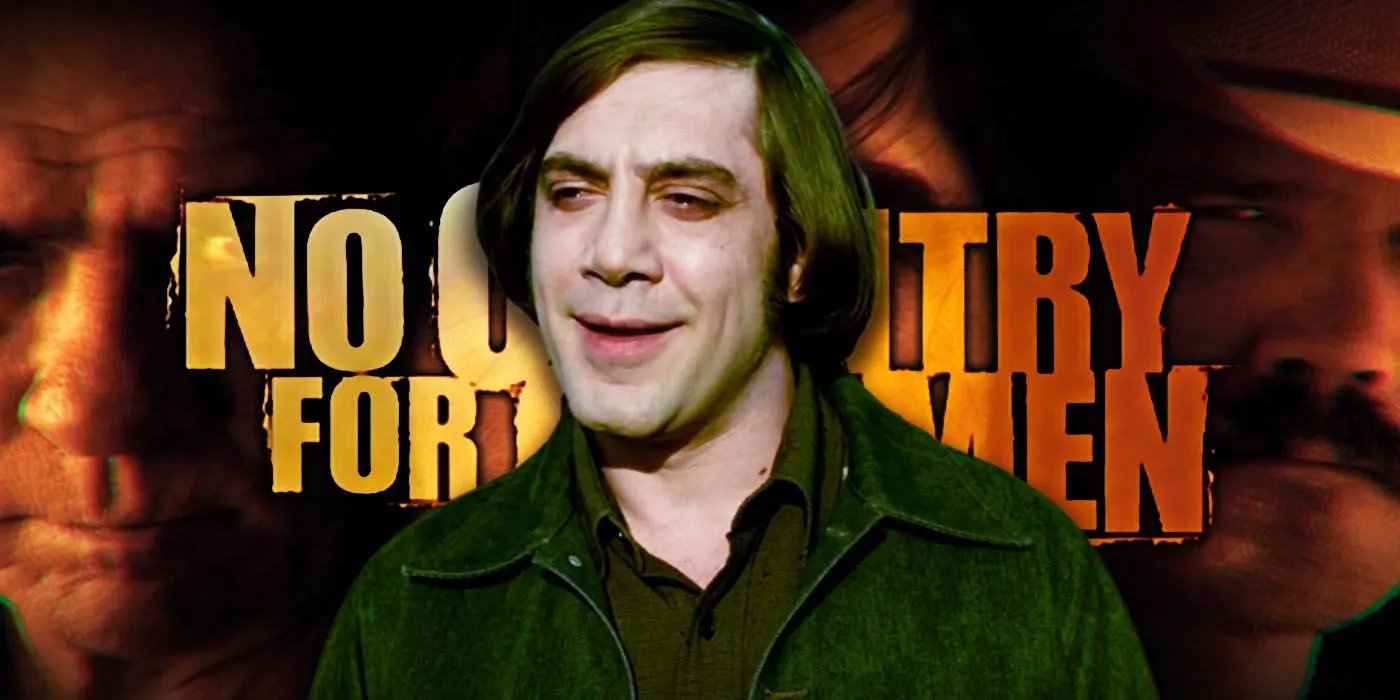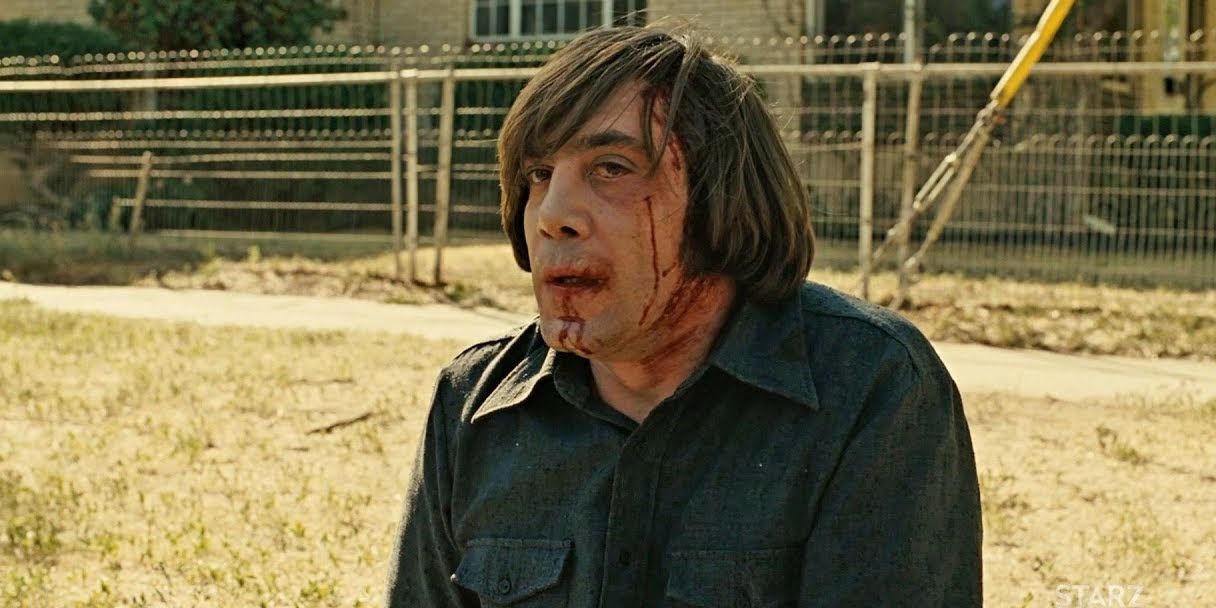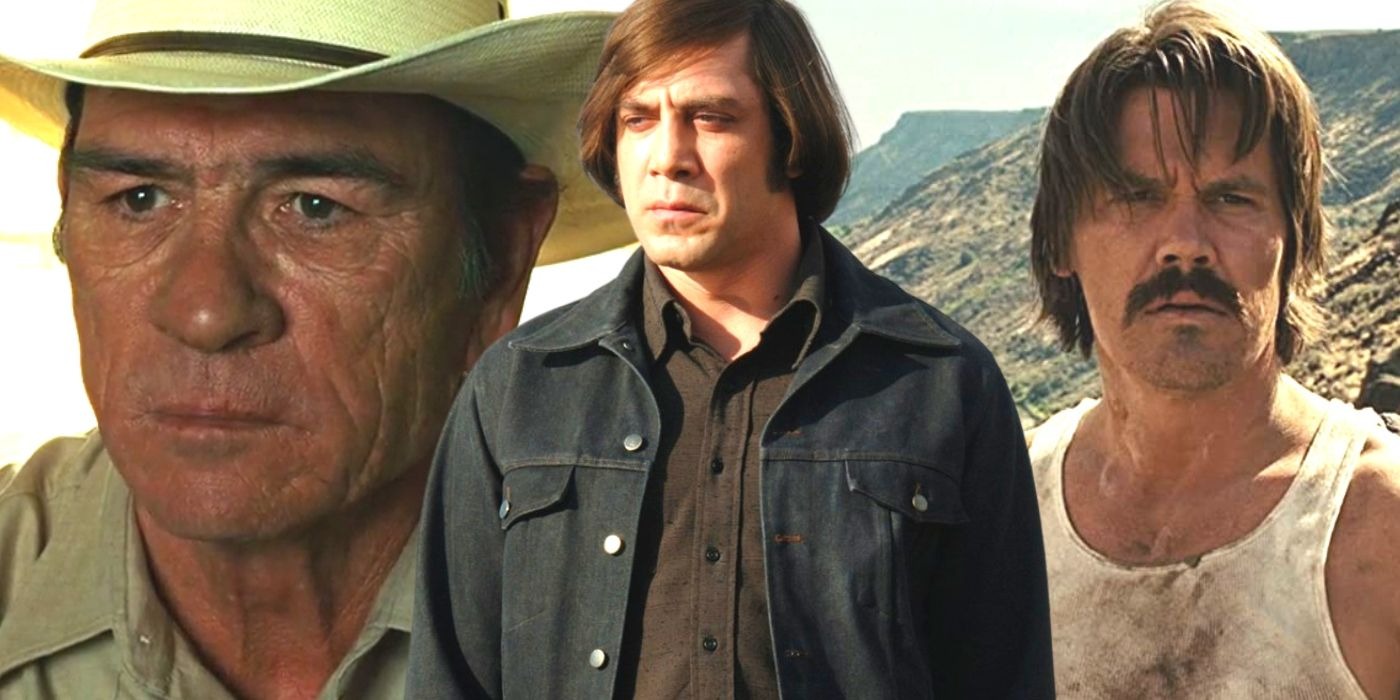Rather than leading to a final face-off between Moss and Chigurh, the film takes a different turn. Moss (Josh Brolin), who has spent much of the movie trying to outrun the relentless hitman Chigurh (Javier Bardem), meets his end offscreen, taken out by other assassins.
Following this, Chigurh reclaims the stolen money and, staying true to his word, seeks out Moss’ wife, Carla Jean. Throughout the film, Chigurh has often let fate decide the lives of his potential victims through a coin toss. However, Carla Jean refuses to play along, putting the decision entirely in his hands.

Though the scene doesn’t explicitly show it, everything suggests that Chigurh kills her. Shortly after leaving her house, Chigurh gets into a brutal car accident. Even with injuries, he manages to walk away, disappearing once again.
The film then turns to Sheriff Bell (Tommy Lee Jones), who, after failing to save Moss or retrieve the money, seems lost in thought. In a quiet moment, he recounts two dreams he had the previous night. One dream involves meeting his father, who hands him some money, only for Bell to believe he has misplaced it.
The second dream paints a more vivid picture—he and his father are riding through a snowy mountain pass, with his father riding ahead to light a fire in the darkness. After reflecting on this dream, Bell solemnly states that he woke up, and the screen fades to black.
Why No Country for Old Men’s Ending Divided Opinions
Unconventional Conclusions Often Spark Debate
At first glance, the film carries the look of a classic Western, but the way events play out deviates from the expected pattern. In a more conventional story, Moss would have found a way to defeat Chigurh, reunite with his wife, and escape with his life.
Instead, his story ends in a dingy motel room, and his actions seal Carla Jean’s fate. Beyond this, audiences may have assumed that Sheriff Bell, after watching from the sidelines for much of the story, would step in to track down the money and bring Chigurh to justice. However, this never happens.
The closest he ever gets to Chigurh is standing in a motel room, suspecting that the hitman might still be lurking in the shadows. By the time the film ends, Moss and his wife have been killed, and Chigurh has successfully disappeared with the money.
The tone remains bleak, with the final scenes showing Bell reflecting on his loss of faith in humanity. Some viewers appreciated the deeper themes, while others saw it as an abrupt and unsatisfying way to conclude an intense thriller.
Why No Country for Old Men’s Ending Works Perfectly
The Story Belongs to Sheriff Bell
The way the film plays out tricks many into thinking that Moss is the central character. However, repeated viewings make it clear that Bell is the true protagonist. His journey is not just about chasing criminals but struggling to make sense of a world that feels foreign to him.
The violence and chaos he witnesses leave him feeling helpless, and his decision to retire reflects his unwillingness to keep fighting a battle he no longer understands. As is common with the Coen Brothers’ storytelling, some elements lean toward deeper symbolism.
While Chigurh might not possess supernatural abilities, he represents something more than just a ruthless killer—he embodies the inevitability of death and fate itself. Throughout the film, no character, not even Moss, a trained soldier, can escape what has already been set in motion from the moment the money is taken.
A more conventional ending might have shown Chigurh facing justice, but had Bell found him, the sheriff likely wouldn’t have survived the encounter. Instead of being an anticlimax, the final scene brings together the movie’s core message in a poetic way.
It might not have been what audiences expected, but it was the only fitting way for the story to close.
The Meaning Behind No Country for Old Men’s Ending

Sheriff Bell’s Reflection on Mortality Makes the Story Relatable
Understanding the final moments of the film helps reveal its central theme. Rather than being about a simple chase between Moss and Chigurh, the story focuses on one man’s struggle to hold onto the past and resist an uncertain future.
In that sense, it is a story of aging, and Bell’s journey leads him to accept that change is inevitable. His final dreams serve as a powerful representation of this internal battle. Throughout the film, Bell reminisces about a time when the world seemed simpler and more understandable.
In both of his dreams, his father plays a central role, symbolizing that lost past. However, even within his dreams, there is a quiet realization that those days are long gone. When he notes that he is now older than his father ever was, it becomes clear that even in his subconscious, he understands that the past is beyond his reach.
Before the film’s closing moments, Bell visits his uncle Ellis, who questions his choice to retire. When Bell admits that he feels outmatched, Ellis shares a story about their ancestor, who was shot dead on his porch in 1909 for no particular reason.
Ellis reminds Bell that there is no stopping what is coming—just as time moves forward, so does the inevitable nature of violence and change.
While some viewers may have wanted a more conventional resolution, Bell’s final words show that he has come to terms with the fact that the past cannot be reclaimed, and the future is something no one can control.



